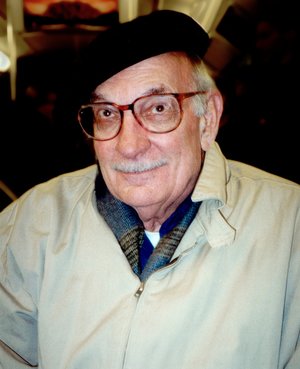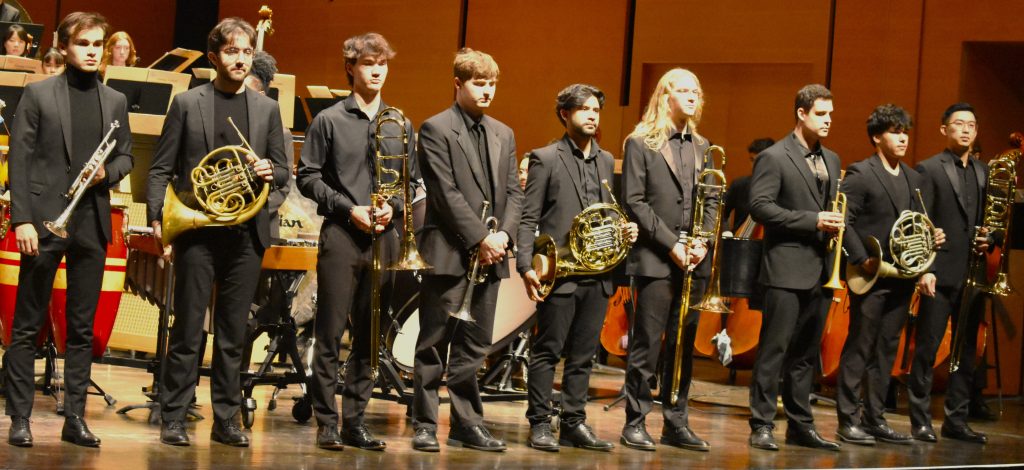
by Kevin T McEneaney
Under the baton of Dr. Leon Botstein, the Bard Conservatory Orchestra opened with Don Juan (1888) by Richard Strauss. This symphonic poem arrived late in the history of this romantic mythology. In English, its apex was Don Juan (1822-1833) by Lord Byron, yet this outrageous, amusing, unfinished masterpiece is little read today.
The warm, soaring opening of Strauss’ version, his first tone symphony written at twenty-five, appears to depict the myth’s arresting, vigorous birth in the seventeenth century. Yet the symphony follows the late German, unfinished version by the Austrian poet Nikolaus Lenau (1802-1850) that presents a critical satire on the romantic myth. It is so critical that it might be dubbed the nail-in-the-coffin version, which exposes the myth’s nihilistic selfishness, bankrupt philosophy, and doomed egotism. Promiscuous passion carries ironic corruption; the myth is a tragic trap as the hero searches for the perfect woman.
Despite the doomed drama of the conclusion in a churchyard cemetery, the whirlwind of three exultant passions finds exuberant portraiture, especially with the flutes under Eliza Karpiak, the horns under Sabrina Scheller, and the violins under concertmaster Yangxin Song. There was an intensity and nuanced texture to this delightful performance that articulated such searching, longing, and hapless tragedy! This composition still retains its place as an important orchestral repertoire due to its marvelous melodies.

George Henry Crumb (1929-2022), a college classmate of Dr. Leo Botstein, who spoke fondly of Crumb’s excentric surreal talent, conducted Echoes of Time and the River (1967), which won the 1968 Pulitzer Prize for Music. This work is in four movements. “Frozen Time” employed high-pitched resonances to satirize the minimalistic ambitions of then-current composers. “Remembrance of Time” satirized the repetitive convention of repetitious relics in the average orchestral repertoire. “Collapse of Time” portrayed the stultifying repetition of popular music, especially festive holiday music. “Last Echoes of Time” depicted the continual hold of popular music on public spectacles, especially band marching music. In the last two movements band members marched across the stage hardly performing any notes in a solemn pantomime. This composition announced a war against cliché as it employed well-worn nineteenth-century Oriental motifs from China to Indonesia. Isolated fragments of music repeat to mock the lack of contemporary innovation in American classical music that appeared to worship the European heritage while neglecting both our earth’s natural musical landscape, as well as our native musical heritage. For further information on Crumb see his website.

A Symphony to Dante’s Divine Comedy (1857) by Franz Liszt still packs a transcendent thrill. The chromatic, plunging descent into Hell was charged by the superbly grinding tuba of Zander Grier, the resonating cellos under Ethan Young, the solemn trombone of Riley Lyons, and the unnerving bassoon of Chloe Brill, and the brilliant bass clarinet of Mohammed AbdNikfarjam. Dante completed his Inferno ten years after Hell was declared Christian doctrine and it remains one of the greatest satires ever penned with roasting Popes and numerous amusing political passages.
Purgatory, an Irish 6th-century myth to combat Manicheanism, offered some relief with harpists Karen Tay and Isabel Cardenas. A professor once said to me that Purgatorio was Dante’s greatest achievement since it depicted the struggles of the lived life, yet I still think the poetry of the Inferno remains the best part of the epic. Here the violas under Jessica Ward excelled with color as well as the clarinets under Eszter Pókai. The unorthodox shifting of tones delivered an unexpected magical ambiance while a fierce demonic fugue planted a smile on everyone’s face.
From the west balcony above the Bard Chamber Singers, over two dozen singers under the direction of James Bagwell, delicately sang with heavenly cadence a version of Ave Maria from the gospel of Luke (a Celtic-Grecian mythologist who wished to divert pagan goddess worship into Christian myth). The audience was overcome with the delirium of delight, applauding for an unusually long time….
